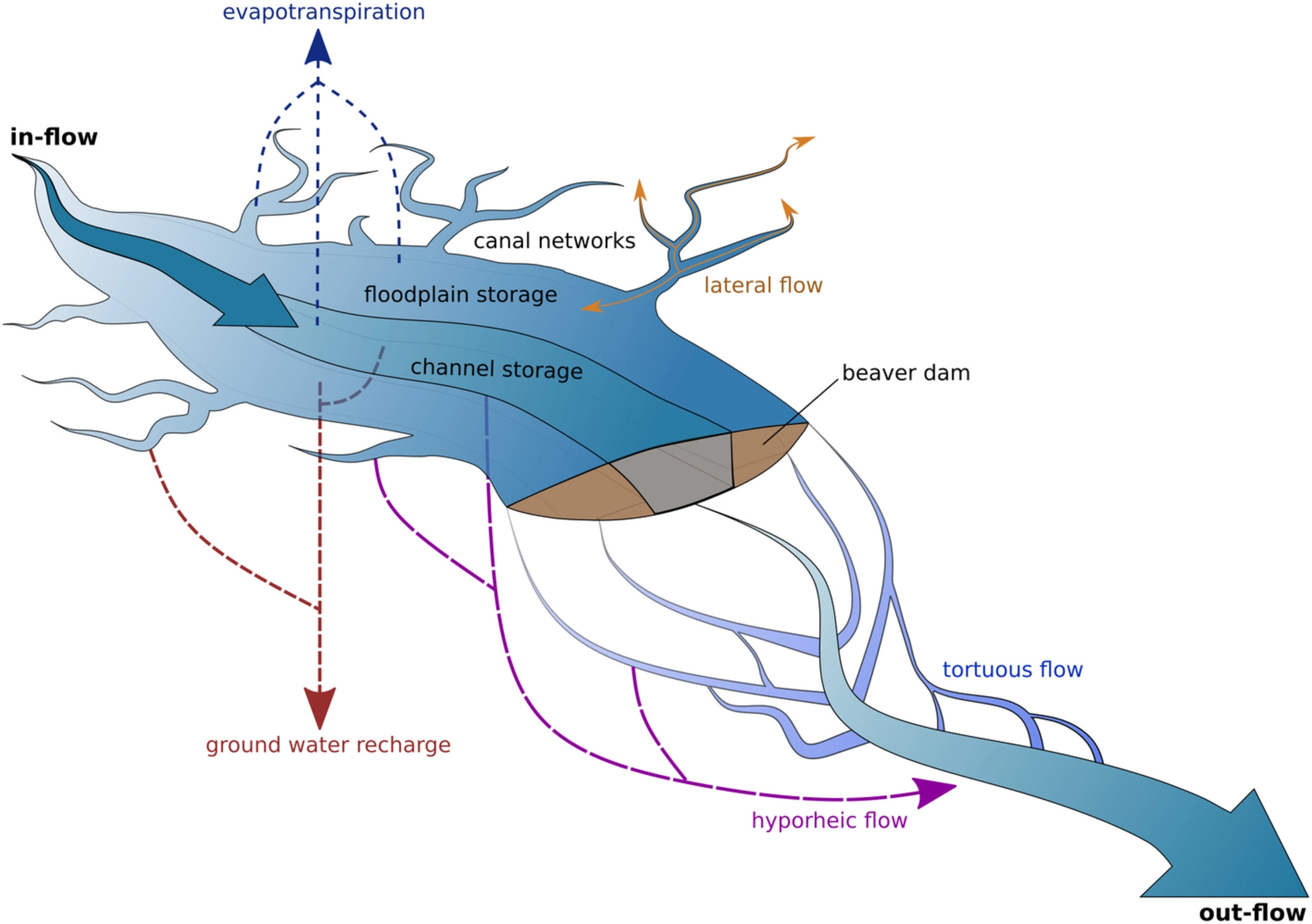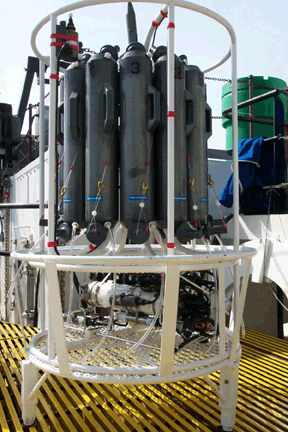|
Hydrologist
Hydrology () is the scientific study of the movement, distribution, and management of water on Earth and other planets, including the water cycle, water resources, and drainage basin sustainability. A practitioner of hydrology is called a hydrologist. Hydrologists are scientists studying earth or environmental science, civil or environmental engineering, and physical geography. Using various analytical methods and scientific techniques, they collect and analyze data to help solve water related problems such as environmental preservation, natural disasters, and water management. Hydrology subdivides into surface water hydrology, groundwater hydrology (hydrogeology), and marine hydrology. Domains of hydrology include hydrometeorology, surface hydrology, hydrogeology, drainage-basin management, and water quality. Oceanography and meteorology are not included because water is only one of many important aspects within those fields. Hydrological research can inform environmen ... [...More Info...] [...Related Items...] OR: [Wikipedia] [Google] [Baidu] |
Ecohydrology
Ecohydrology (from Ancient Greek, Greek , ''oikos'', "house(hold)"; , ''hydōr'', "water"; and , ''-logy, -logia'') is an interdisciplinary scientific field studying the interactions between water and ecological systems. It is considered a sub discipline of hydrology, with an ecological focus. These interactions may take place within water bodies, such as rivers and lakes, or on land, in forests, deserts, and other terrestrial ecosystems. Areas of research in ecohydrology include transpiration and plant water use, adaption of organisms to their water environment, influence of vegetation and benthic plants on stream flow and function, and feedbacks between ecological processes, the soil carbon sponge and the hydrological cycle. Key concepts The hydrologic cycle describes the continuous movement of water on, Moisture recycling, above, and below the surface on the earth. This flow is altered by ecosystems at numerous points. Transpiration from plants provides the majority of flow of ... [...More Info...] [...Related Items...] OR: [Wikipedia] [Google] [Baidu] |
Hydrometeorology
Hydrometeorology is a branch of meteorology and hydrology that studies the transfer of water and energy between the land surface and the lower atmosphere for academic research, commercial gain or operational forecasting purposes. Whilst traditionally meteorologists and hydrologists sit within separate organisations, hydrometeorlogists may work in joint project teams, virtual teams, deal with specific incidents or be permanently co-located to deliver specific objectives. Hydrometeorlogists typically have a foundation in one or other discipline before undertaking additional training and specialist forecaster training depending on requirements. The cross over skills and knowledge between the two disciplines can bring organisational benefits in terms of efficiencies in terms of using tools and data available, and provide benefits in terms of enhanced lead times ahead of hydrometeological hazards occurring. UNESCO has several programs and activities in place that deal with the study of ... [...More Info...] [...Related Items...] OR: [Wikipedia] [Google] [Baidu] |
Hydrogeology
Hydrogeology (''hydro-'' meaning water, and ''-geology'' meaning the study of the Earth) is the area of geology that deals with the distribution and movement of groundwater in the soil and rock (geology), rocks of the Earth's crust (geology), crust (commonly in aquifers). The terms groundwater hydrology, geohydrology, and hydrogeology are often used interchangeably, though hydrogeology is the most commonly used. Hydrogeology is the study of the laws governing the movement of subterranean water, the mechanical, chemical, and thermal interaction of this water with the porous solid, and the transport of energy, chemical constituents, and particulate matter by flow (Domenico and Schwartz, 1998). Groundwater engineering, another name for hydrogeology, is a branch of engineering which is concerned with groundwater movement and design of Well, wells, Pump, pumps, and drains. The main concerns in groundwater engineering include groundwater contamination, conservation of suppli ... [...More Info...] [...Related Items...] OR: [Wikipedia] [Google] [Baidu] |
Hydrometeorology
Hydrometeorology is a branch of meteorology and hydrology that studies the transfer of water and energy between the land surface and the lower atmosphere for academic research, commercial gain or operational forecasting purposes. Whilst traditionally meteorologists and hydrologists sit within separate organisations, hydrometeorlogists may work in joint project teams, virtual teams, deal with specific incidents or be permanently co-located to deliver specific objectives. Hydrometeorlogists typically have a foundation in one or other discipline before undertaking additional training and specialist forecaster training depending on requirements. The cross over skills and knowledge between the two disciplines can bring organisational benefits in terms of efficiencies in terms of using tools and data available, and provide benefits in terms of enhanced lead times ahead of hydrometeological hazards occurring. UNESCO has several programs and activities in place that deal with the study of ... [...More Info...] [...Related Items...] OR: [Wikipedia] [Google] [Baidu] |
Earth Science
Earth science or geoscience includes all fields of natural science related to the planet Earth. This is a branch of science dealing with the physical, chemical, and biological complex constitutions and synergistic linkages of Earth's four spheres: the biosphere, hydrosphere/ cryosphere, atmosphere, and geosphere (or lithosphere). Earth science can be considered to be a branch of planetary science but with a much older history. Geology Geology is broadly the study of Earth's structure, substance, and processes. Geology is largely the study of the lithosphere, or Earth's surface, including the crust and rocks. It includes the physical characteristics and processes that occur in the lithosphere as well as how they are affected by geothermal energy. It incorporates aspects of chemistry, physics, and biology as elements of geology interact. Historical geology is the application of geology to interpret Earth history and how it has changed over time. Geochemistry studies the che ... [...More Info...] [...Related Items...] OR: [Wikipedia] [Google] [Baidu] |
Groundwater
Groundwater is the water present beneath Earth's surface in rock and Pore space in soil, soil pore spaces and in the fractures of stratum, rock formations. About 30 percent of all readily available fresh water in the world is groundwater. A unit of rock or an unconsolidated deposit is called an ''aquifer'' when it can yield a usable quantity of water. The depth at which soil pore spaces or fractures and voids in rock become completely saturated with water is called the ''water table''. Groundwater is Groundwater recharge, recharged from the surface; it may discharge from the surface naturally at spring (hydrosphere), springs and Seep (hydrology), seeps, and can form oasis, oases or wetlands. Groundwater is also often withdrawn for agricultural, municipal, and industrial use by constructing and operating extraction water well, wells. The study of the distribution and movement of groundwater is ''hydrogeology'', also called groundwater hydrology. Typically, groundwater is thought o ... [...More Info...] [...Related Items...] OR: [Wikipedia] [Google] [Baidu] |
Meteorology
Meteorology is the scientific study of the Earth's atmosphere and short-term atmospheric phenomena (i.e. weather), with a focus on weather forecasting. It has applications in the military, aviation, energy production, transport, agriculture, construction, weather warnings and disaster management. Along with climatology, atmospheric physics and atmospheric chemistry, meteorology forms the broader field of the atmospheric sciences. The interactions between Earth's atmosphere and its oceans (notably El Niño and La Niña) are studied in the interdisciplinary field of hydrometeorology. Other interdisciplinary areas include biometeorology, space weather and planetary meteorology. Marine weather forecasting relates meteorology to maritime and coastal safety, based on atmospheric interactions with large bodies of water. Meteorologists study meteorological phenomena driven by solar radiation, Earth's rotation, ocean currents and other factors. These include everyday ... [...More Info...] [...Related Items...] OR: [Wikipedia] [Google] [Baidu] |
Hydrogeology
Hydrogeology (''hydro-'' meaning water, and ''-geology'' meaning the study of the Earth) is the area of geology that deals with the distribution and movement of groundwater in the soil and rock (geology), rocks of the Earth's crust (geology), crust (commonly in aquifers). The terms groundwater hydrology, geohydrology, and hydrogeology are often used interchangeably, though hydrogeology is the most commonly used. Hydrogeology is the study of the laws governing the movement of subterranean water, the mechanical, chemical, and thermal interaction of this water with the porous solid, and the transport of energy, chemical constituents, and particulate matter by flow (Domenico and Schwartz, 1998). Groundwater engineering, another name for hydrogeology, is a branch of engineering which is concerned with groundwater movement and design of Well, wells, Pump, pumps, and drains. The main concerns in groundwater engineering include groundwater contamination, conservation of suppli ... [...More Info...] [...Related Items...] OR: [Wikipedia] [Google] [Baidu] |
Rain Over Beinn Eich, Luss Hills, Scotland
Rain is a form of precipitation where water drop (liquid), droplets that have condensation, condensed from Water vapor#In Earth's atmosphere, atmospheric water vapor fall under gravity. Rain is a major component of the water cycle and is responsible for depositing most of the fresh water on the Earth. It provides water for hydroelectricity, hydroelectric power plants, crop irrigation, and suitable conditions for many types of ecosystems. The major cause of rain production is moisture moving along three-dimensional zones of temperature and moisture contrasts known as weather fronts. If enough moisture and upward motion is present, precipitation falls from convection, convective clouds (those with strong upward vertical motion) such as cumulonimbus (thunder clouds) which can organize into narrow rainbands. In mountainous areas, heavy precipitation is possible where upslope flow is maximized within windward sides of the terrain at elevation which forces moist air to condense and ... [...More Info...] [...Related Items...] OR: [Wikipedia] [Google] [Baidu] |
Environmental Planning
Environmental planning is the process of facilitating decision making to carry out land development with the consideration given to the natural environment, social, political, economic and governance factors and provides a holistic framework to achieve sustainable outcomes. A major goal of environmental planning is to create sustainable communities, which aim to conserve and protect undeveloped land. Elements Environmental planning concerns itself with the decision making processes where they are required for managing relationships that exist within and between natural systems and human systems. Environmental planning endeavors to manage these processes in an effective, orderly, transparent and equitable manner for the benefit of all constituents within such systems for the present and for the future. Present day environmental planning practices are the result of continuous refinement and expansion of the scope of such decision making processes. Some of the main elements of pr ... [...More Info...] [...Related Items...] OR: [Wikipedia] [Google] [Baidu] |
Hydrogeochemistry
Geochemistry is the science that uses the tools and principles of chemistry to explain the mechanisms behind major geological systems such as the Earth's crust and its oceans. The realm of geochemistry extends beyond the Earth, encompassing the entire Solar System, and has made important contributions to the understanding of a number of processes including mantle convection, the formation of planets and the origins of granite and basalt. It is an integrated field of chemistry and geology. History The term ''geochemistry'' was first used by the Swiss-German chemist Christian Friedrich Schönbein in 1838: "a comparative geochemistry ought to be launched, before geognosy can become geology, and before the mystery of the genesis of our planets and their inorganic matter may be revealed." However, for the rest of the century the more common term was "chemical geology", and there was little contact between geologists and chemists. Geochemistry emerged as a separate discipline after ... [...More Info...] [...Related Items...] OR: [Wikipedia] [Google] [Baidu] |
Chemical Hydrology
Water quality refers to the chemical, physical, and biological characteristics of water based on the standards of its usage. It is most frequently used by reference to a set of standards against which compliance, generally achieved through treatment of the water, can be assessed. The most common standards used to monitor and assess water quality convey the health of ecosystems, safety of human contact, extent of water pollution and condition of drinking water. Water quality has a significant impact on water supply and often determines supply options. Impacts on public health Over time, there has been increasing recognition of the importance of drinking water quality and its impact on public health. This has led to increasing protection and management of water quality. Text was copied from this source, which is available under a Creative Commons Attribution 4.0 International License The understanding of the links between water quality and health continues to grow and h ... [...More Info...] [...Related Items...] OR: [Wikipedia] [Google] [Baidu] |









